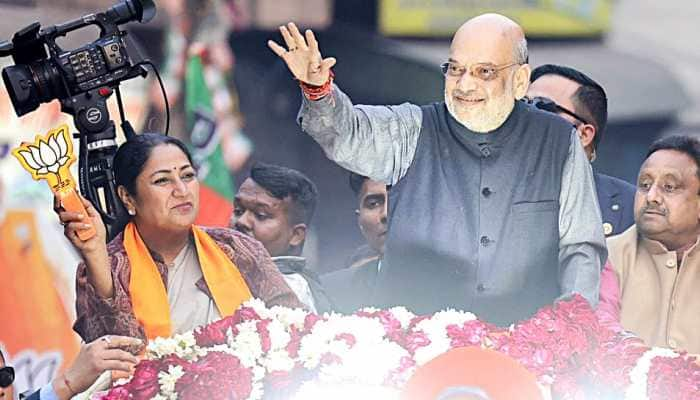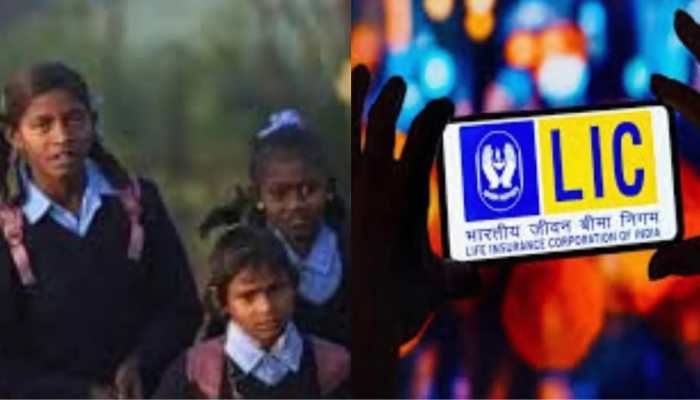Some hard realities
Every human being who is sent to this world by God brings with him a certain set of rights which naturally belong to him/her by birth. When any of these rights are violated, the entire cycle of life gets disrupted. Atrocities committed on one individual actually get reflected in the entire society. Hence it becomes difficult to live comfortably in such an insecure environment. Therefore we owe it only to ourselves to focus some of our energies in this direction as well.
Trending Photos
)
Ritam Banati
Every human being who is sent to this world by God brings with him a certain set of rights which naturally belong to him/her by birth. When any of these rights are violated, the entire cycle of life gets disrupted. Atrocities committed on one individual actually get reflected in the entire society. Hence it becomes difficult to live comfortably in such an insecure environment. Therefore we owe it only to ourselves to focus some of our energies in this direction as well.
Before advocating measures to combat the same, let us first concentrate on some evils that societies have to face.
Armed Conflict: During war-time, the fruits of the battle but obviously accrue to the victor. And it is indeed heart-rending that women and children are treated like the belongings of the winner. This subjects women and children to brutal sex crimes like has happened in most conflicts. In many cases it has been reported that the UN peacekeepers who had gone to such areas seemingly to help in peace efforts actually turned out to be the exploiters. It thus is futile here to talk about the UN theory behind human rights.
In an armed conflict, children are also at times used as soldiers. And this robs them of their innocence to such an extent that they very often grow up to become violators of human rights. Rebels in Sri Lanka, Nepal and some African countries are good examples. The United Nations has banned the use of below-18 children in the armies. Despite this a so-called advanced nation like United Kingdom deems it appropriate to recruit below-18 children in the Army.
The United States, which brags to be the custodian of the victims, has many a time proven to be the perpetrator. The sanctions imposed in Iraq had caused the untimely demise of almost half a million children. To worsen matters, this was actually rationalised a few years ago by a top US official.
The Israel-Palestine conflict too is reported to have resulted in a huge loss of human life. The ongoing tension in countries like Afghanistan, have added to the already sorry state of affairs. Human rights breaches in Afghanistan are quite common where Taliban is a infamous for infliction of brutalities.
Sexual abuse: A most despicable act, sexual abuse in any form needs to be dealt with an iron fist. Forced prostitution flourishes in India and bordering countries like Nepal. India has become a market for poor Nepali women who are very easily exploited sexually due to abject poverty. The gruesome crime of rape cuts across geographical barriers. Poverty is generally not its leading cause as all children and women are equally vulnerable to it. Even in a superpower like USA, several child abuse cases come to light almost on a daily basis. A global problem it needs to be handled extremely delicately if it has to be uprooted once and for all.
Poverty: Money may be the root of all evils for some but for some others it will prove helpful in mitigating the debilitating effects of poverty. Poverty is one of the leading causes of many problems like malnutrition, starvation deaths, illiteracy and farmer suicides. Eradicating poverty will not only lay barren the main breeding ground of crime but would also help in creating a healthy environment conducive for growth. Some parts of the world like Africa, South Asia and the Middle East have pockets that are seeped in poverty. It is not a mere coincidence that such areas are mostly crime-infested as well. There is a need to study the impact and the use of the financial grants which are provided by UN organizations like the World Bank, the International Monetary Fund to needy nations like Nepal, Bangladesh and India at the time of disasters and also otherwise.
Ethnic minorities: Through the years, ethnic cleansing and exploitation against anybody who is different has been a practice. History is replete with examples of discrimination on the basis of colour, religion, caste, community, features etc. Upper caste dominance has sometimes taken an ugly turn and left bitter memories in the minds of the lower castes. Religious intolerance is known to foment fundamentalism, one of the leading causes of terrorism in the world. The colonial era has witnessed the subjugation of blacks and browns by the whites. Blacks have been used as slaves and have also been traded as commodities besides being subjected to avoidable torture. Noted British author Rudyard Kipling once stated, “It is the white man’s burden to civilize the inferior races.”
During the holocaust, mass murders took place in concentration camps of Jews by Nazis in a well-planned conspiracy that stirs human conscience to this day. The worst genocide in history witnessed the killings of over 5 million Jews.
There have been several other wars which have seen the genocide of people hailing from different ethnic origin. This leads to the creation of the refugee problem.
Legal recourse is not often the best recourse to kill the above evils. One cannot just leave the victims at the mercy of the courts or NGOs. But undoubtedly a strong and effective criminal justice system is a deterrent against such violations. The point being made here is that an over-reliance on the judiciary might in effect compound the problem. This is particularly true in the context of many developing and under-developed nations. So besides fortifying the legal structure, it is also necessary to fully exploit, expand and suitably modify the functioning of global organisations like the United Nations. But most importantly there is a vital need for a change of mindset. Because, after all human rights violations are a product of abuse of a human being by a human being.
Stay informed on all the latest news, real-time breaking news updates, and follow all the important headlines in india news and world News on Zee News.
Advertisement
Live Tv
Advertisement







)
)
)
)
)
)
)
)
)
)
